Taiwan's big swing in election results in the past decade
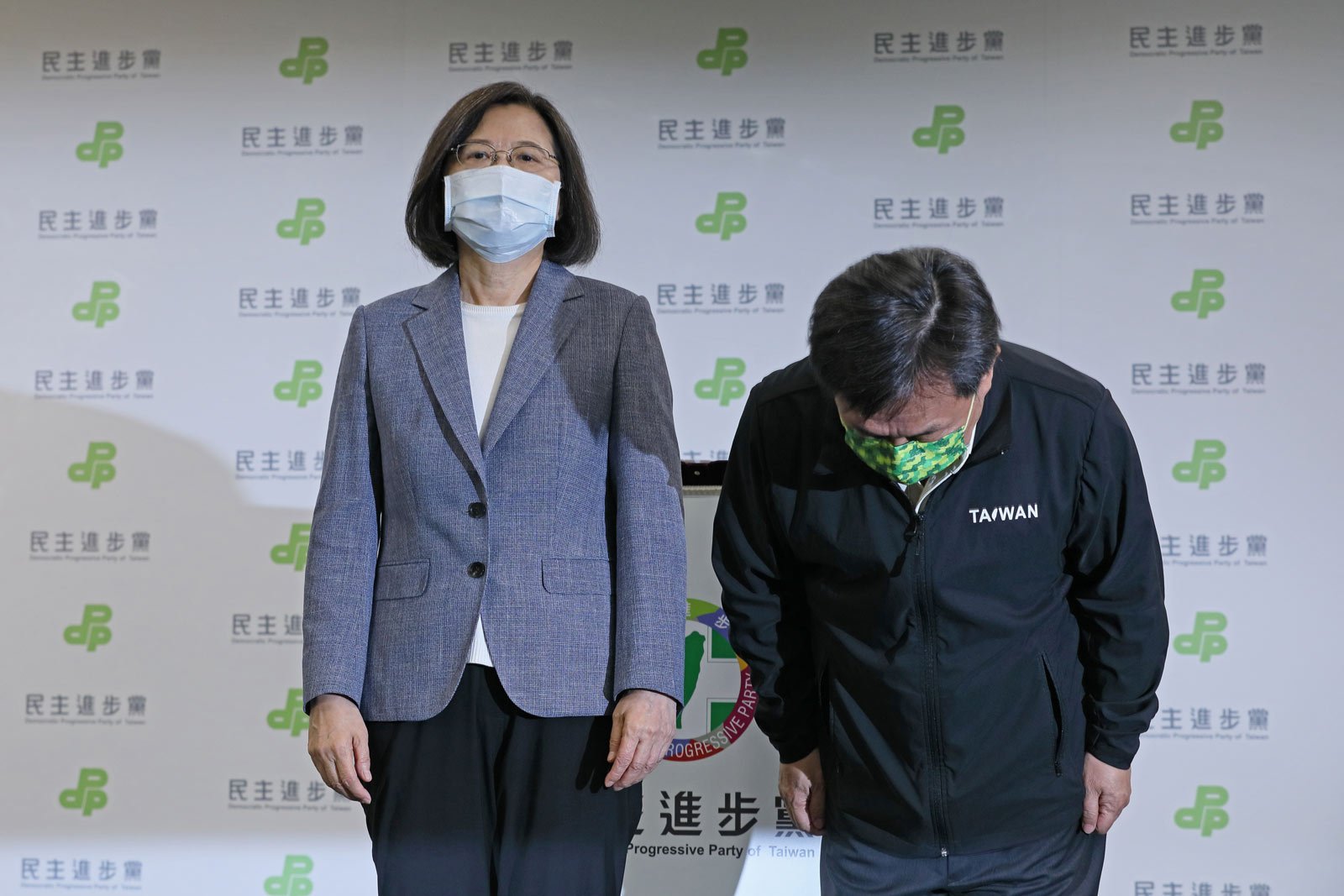
Source:Chien-Tong Wang
After the DPP’s sweeping victory in the 2020 presidential election, it experienced a significant loss in the 2022 local election. In this Taiwan Explained article, we shall walk you through the timeline that shows how the political landscape shifted in Taiwan over the past decade.
Views
Taiwan's big swing in election results in the past decade
By Pingfa Pirassameepulkul, Jasmine Singhweb only
On November 26, 2022, Taiwan’s ruling party, the Democratic Progressive Party (DPP), lost key cities to the opposition Kuomintang (KMT) in the 9-in-1 local election. The DPP only won five out of 21 seats in 22 cities and counties. (There were only 21 seats due to the death of independent candidate Huang Shao-tsung (黃紹聰) in Chiayi City.) The DPP’s results were the worst ever since the party was founded in 1986. In the north, KMT mayoral candidates were successful in Taipei City, New Taipei City, and Taoyuan City. Even in the DPP’s traditional southern strongholds, namely Pingtung and Tainan, seats were won by very small margins.
After the DPP's sweeping victory in the 2020 presidential election, it experienced a significant loss in the 2022 local election. However, this dramatic swing was not unusual. Taiwan’s presidential and mayoral elections, which are held at fixed intervals of every two years, have seen significant shifts in support between Taiwan’s two major political parties over the past decade.
2012
Although there was the "North Blue, South Green" phenomena in the 2012 presidential election, KMT incumbent Ma Ying-jeou was able to sustain popularity in the North and decrease opposition in the South. Finally, he narrowly won reelection with 51.60% of the votes.
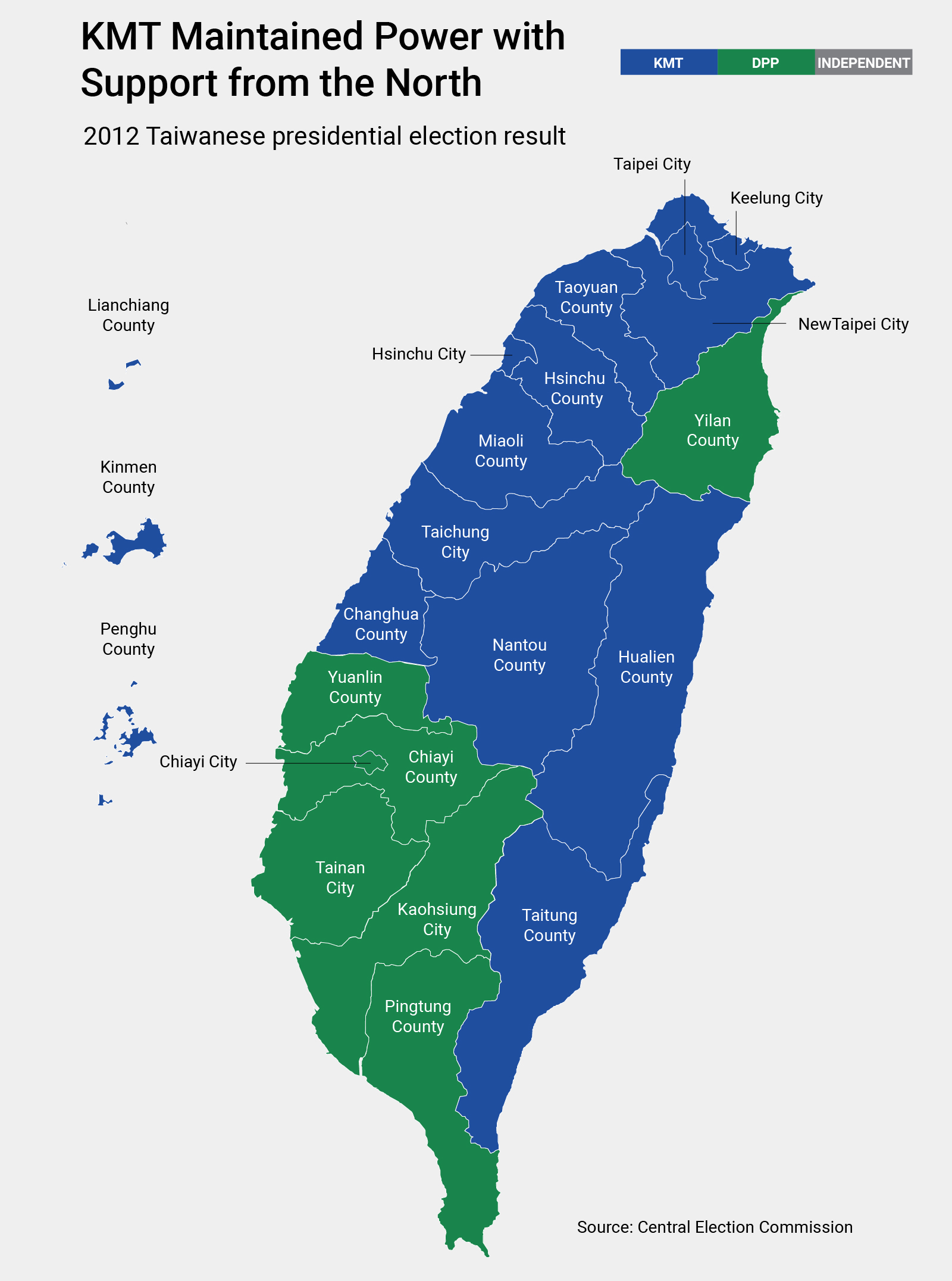 [FIGURE_1]
[FIGURE_1]
2014
After the 2014 Sunflower Movement several third-force parties emerged and caused a shift in voting demographics. The DPP gained support of new and swing voters, which resulted in their win in the 2014 local elections. Yet, the KMT suffered an immense loss of 5 out of 6 Special Municipalities attaining only New Taipei City in hand. In contrast, the DPP allied with independent candidate Ko Wen-je to win Taipei City. This was the first time the KMT had lost in a two-way race in the capital after Taiwan’s democratization.
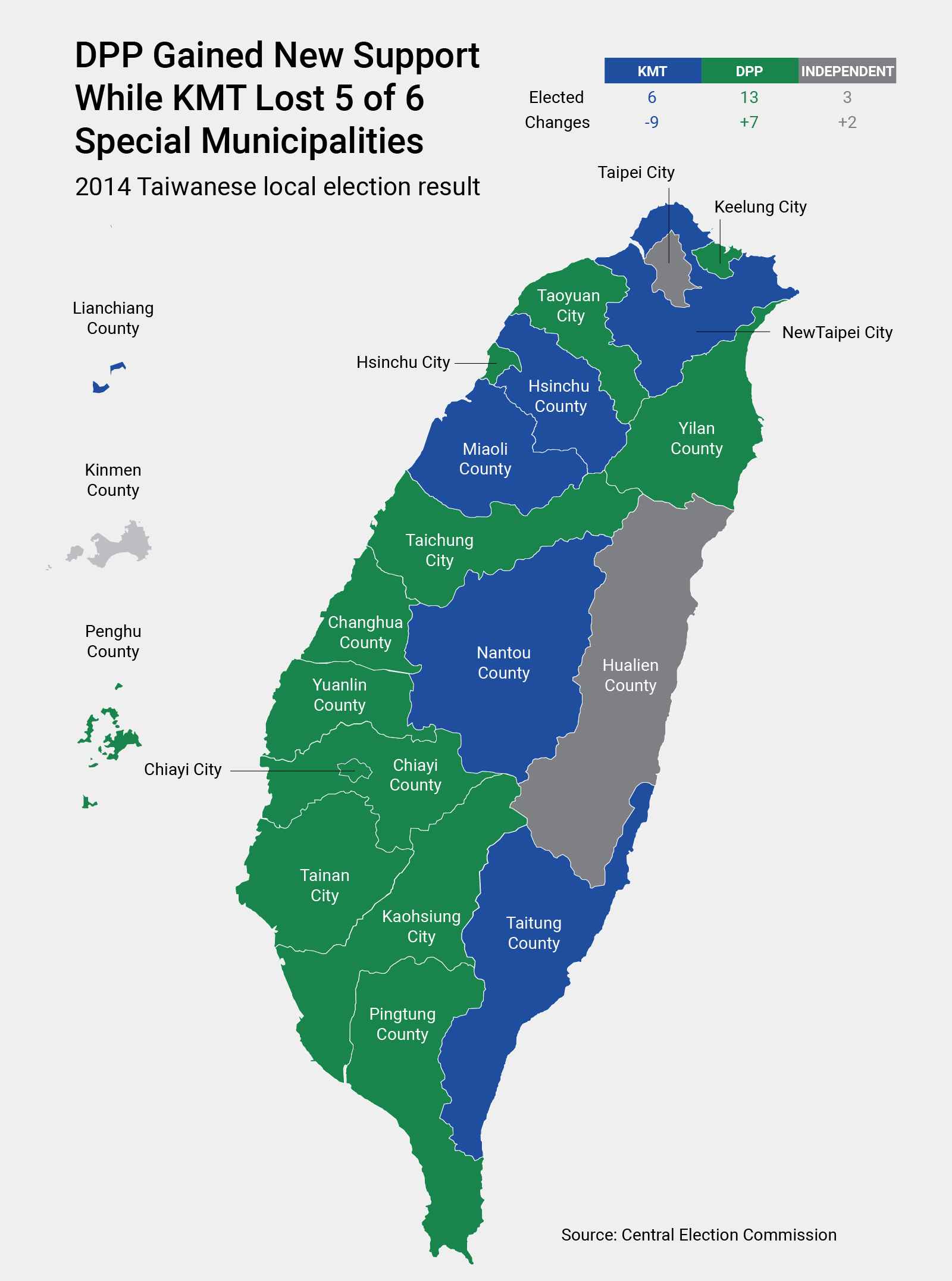 [FIGURE_2]
[FIGURE_2]
2016
In the 2016 presidential election, the DPP delivered another sweeping victory, with President Tsai Ing-wen winning handily with 56.12% of the votes.
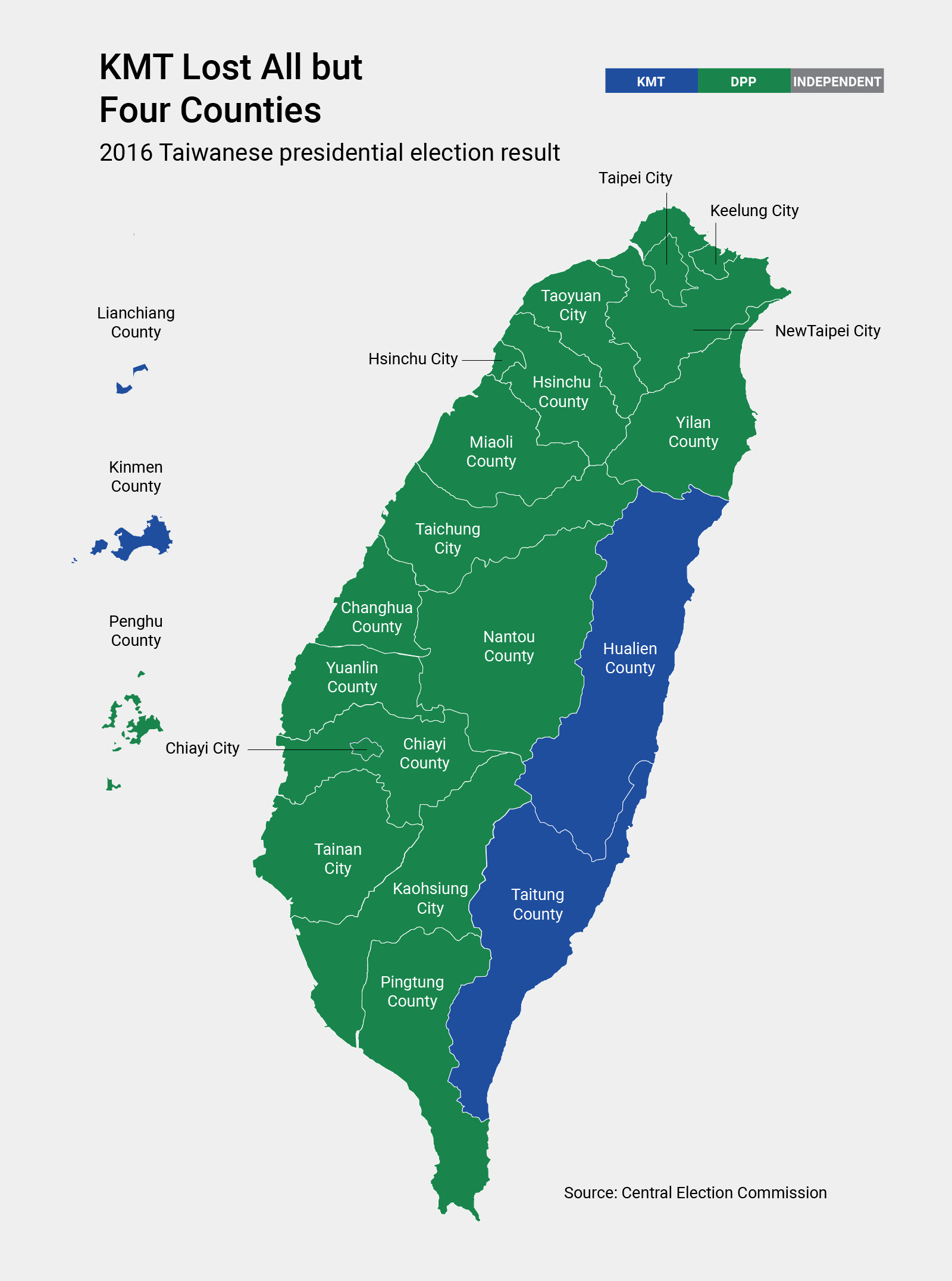 [FIGURE_3]
[FIGURE_3]
2018
In the 2018 elections, Taiwan saw another major shift. The KMT retained seats in 15 of Taiwan’s 22 cities or counties.
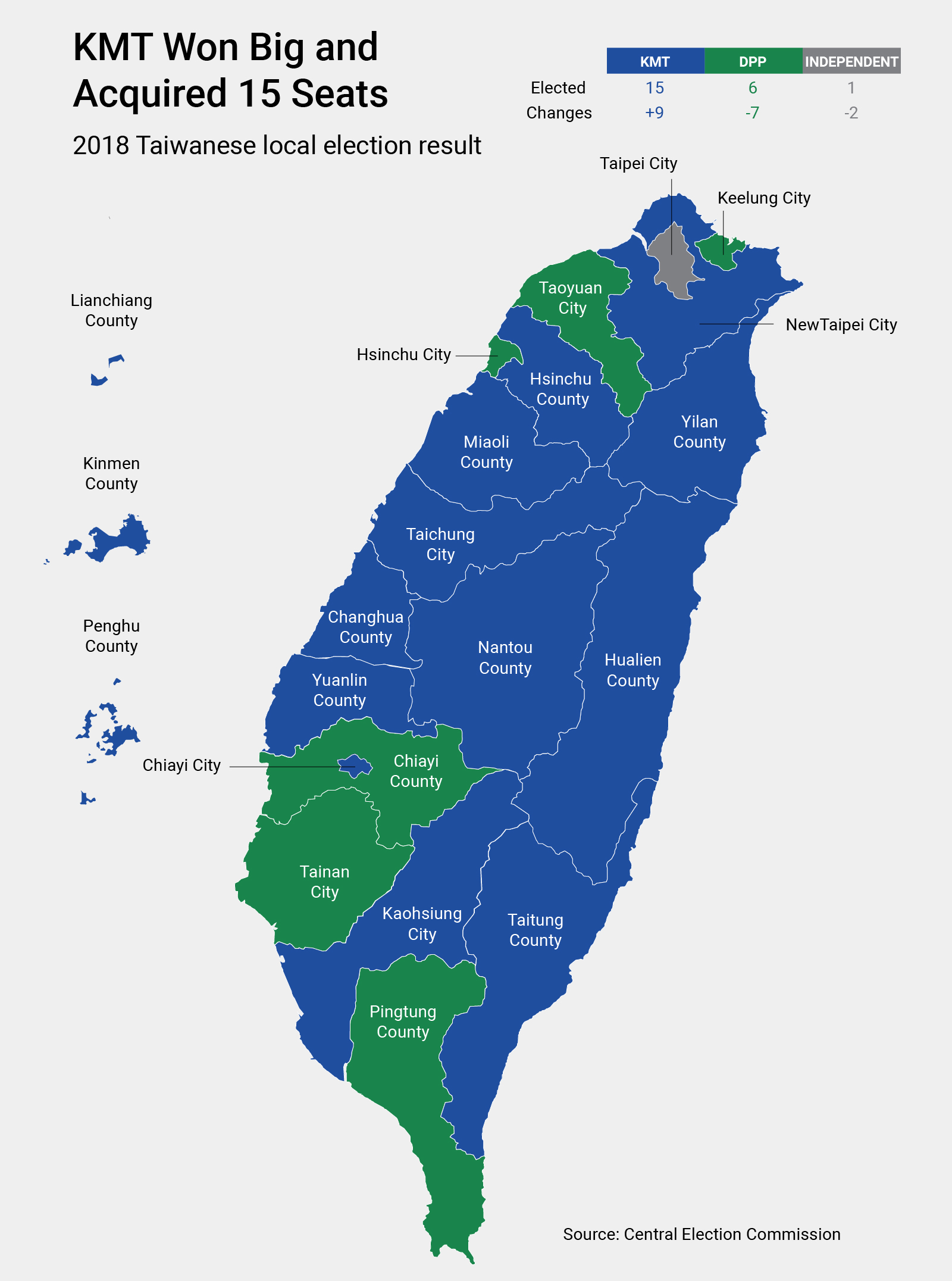 [FIGURE_4]
[FIGURE_4]
2020
However, that tide turned yet again in the 2020 presidential election. Tsai Ing-wen was reelected and the DPP regained the support of the electorate.
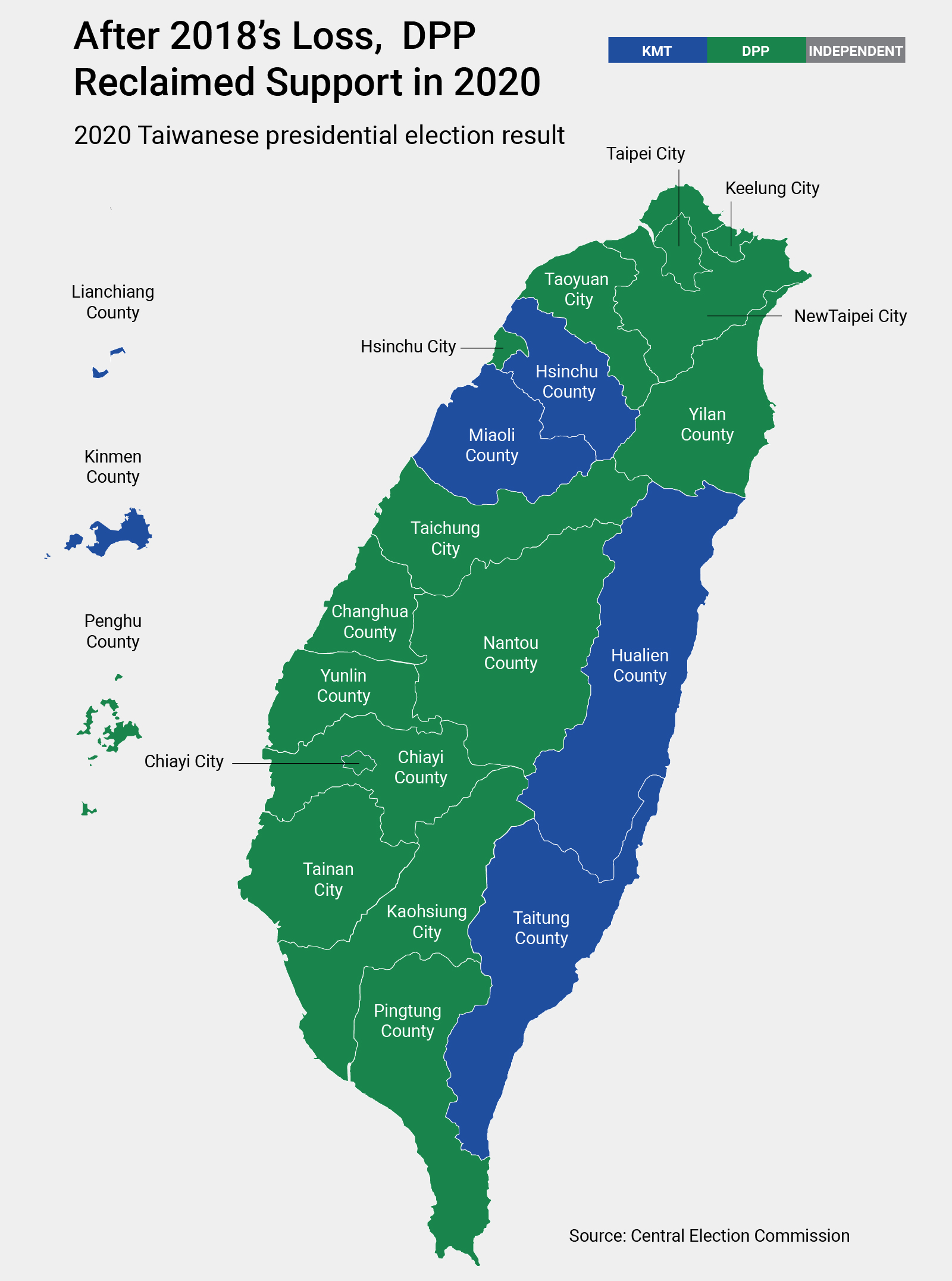 [FIGURE_5]
[FIGURE_5]
2022
Now, in 2022, we are seeing another dramatic swing as the KMT sweeps local elections. Note that the Chiayi City election was postponed to December 18th, 2022 after the death of independent candidate Huang Shao-tsung.
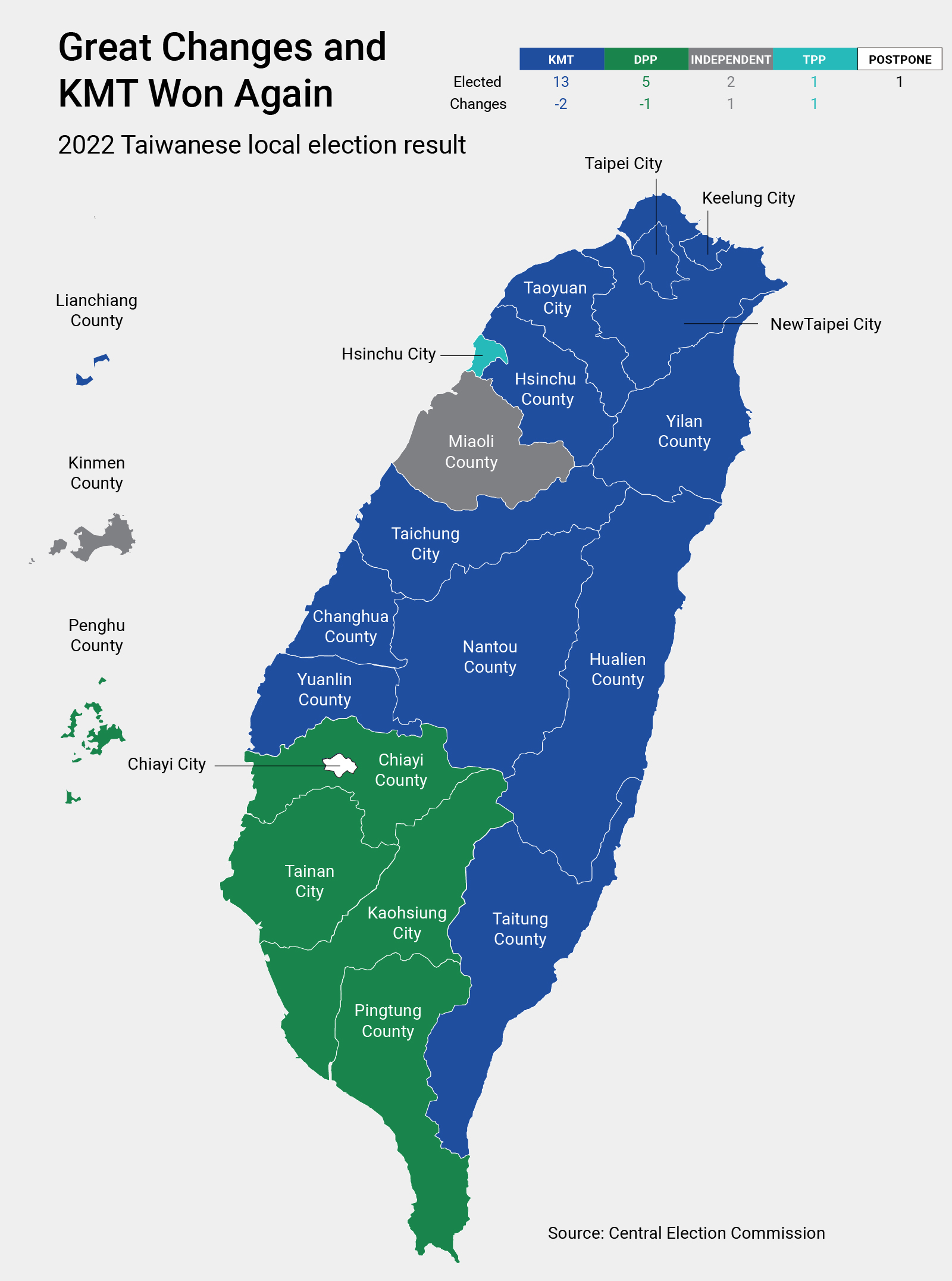 [FIGURE_6]
[FIGURE_6]
Compared to 2020, the DPP was only able to keep the southern part of Taiwan, gaining voter support in Kaohsiung and Tainan. The KMT swept cities in the north, including Taipei, New Taipei, Taoyuan, and Keelung.
The DPP has lost this year's mayoral election, retaining only five seats in total. With great changes from 2020 to 2022, KMT has won back their political power in the northern part of Taiwan. They were also able to win the hearts of the people in Central Taiwan, including Taichung, Changhua, Yunlin, and Nantou. The DPP was able to retain their control in the southern cities like Kaohsiung, Tainan, and Pingtung, having lost 13 seats to the KMT and one seat to TPP.
All in all, this year's mayoral election was a huge overturn in terms of political power in Taiwan.
About the project:
To provide insightful information about the 2022 Taiwan local election, the CommonWealth Magazine has collaborated with the International College of Innovation, National Chengchi University (NCCU), and the Election Study Center of NCCU, to open a Capstone course: Practice of Data Analysis. NCCU students from different countries collaborated in this course by employing their coding skills and political knowledge about Taiwan to produce data-driven stories about the 2022 Taiwan local elections.
The main instructor is Chung-pei Pien, Assistant Professor of International College of Innovation, NCCU (@pienici). Advisors include Nathan Batto, Associate Research Fellow, Institute of Political Science, Academia Sinica, Taiwan; Lev Nachman, Jointly Appointed Assistant Professor of International College of Innovation & International Doctoral Program in Asia-Pacific Studies, NCCU (@lnachman32); Eric Yu, Research Fellow, Election Study Center, NCCU; and Silva Shih, Managing Editor at Commonwealth Magazine (@silvashih). Morris Yang, Graduate Student of College of Communication at NCCU, is the teaching assistant. (@MorrisSHYang)
About the authors:
Pingfa Pirassameepulkul is an undergraduate student of International College of Innovation, NCCU, Taiwan. She is a programmer interested in data analysis.
twitter: @pinga626
Jasmine Singh is an undergraduate student of International College of Innovation, NCCU, Taiwan. She is passionate about programming and global studies.
Twitter: @jasminesingh200
LinkedIn: Jasmine Singh
Have you read?
- KMT's victory vs. DPP's defeat? The real story behind Taiwan’s local elections
- The evolving role of immigration in Taiwan politics
Uploaded by Ian Huang






